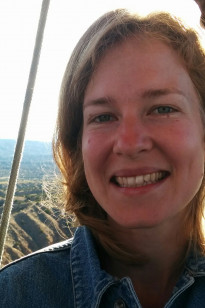

Dr. Boyd earned a B.Sc. in Physics/Philosophy at the University of British Columbia, an M.A. in Philosophy from the University of Waterloo, Ontario and a Ph.D. in History and Philosophy of Science from the University of Pittsburgh. She works primarily on empiricism in philosophy of science and on associated topics such as the nature of scientific evidence and the relationships between theories and data. In addition, Dr. Boyd has active research interests in the philosophy of physics, especially astrophysics and cosmology. Between degrees, Dr. Boyd worked as Research Engineer/Scientist at the Center for Experimental Nuclear Physics and Astrophysics at the University of Washington on projects ranging from neutrino mass research to the search for dark matter particles. At the University of Pittsburgh, Dr. Boyd taught courses on philosophy of science, the history and philosophy of environmental sciences and environmentalism, the philosophy of psychiatry, and biomedical ethics.
| Degree | Program | University |
|---|---|---|
| Ph.D. | University of Pittsburgh |
My Siena Experience
My Teaching Philosophy
When it is working well, education is a collaborative effort among a community of self-directed learners. In a collaborative learning environment, the instructor becomes a facilitator whose job it is to maintain the space for students to discover and explore their own interests and to bring the fruits of that exploration to bear on their lived experience. The instructor can offer the students material, and tools with which to engage that material, with the aim of fostering more sophisticated inquiry into the things that matter to them. For me, this approach is grounded in and fueled by a deep sense of humility: that the students are ultimately the best judges of what is good for them, and that I stand to learn from them and their life experiences and thought processes just as they stand to learn from me and mine. Throughout my teaching, the imperative of supporting students as they take responsibility for their own learning has guided my pedagogical approach.
What I Love About Siena
Everyone is so friendly!
My Favorite Courses to Teach
Philosophy of Science, Ethics of Science and Technology, and Environmental Ethics.
My Professional Experience
Current Research
I work on topics in general philosophy of science, philosophy of physics (especially astrophysics and cosmology), and philosophy of the environment. My main research focus is articulating a robust empiricism that stresses the essential role of empirical constraints in the epistemology of science. My take on empiricism shares the strict antirealist commitment of van Fraassen’s constructive empiricism, but dispenses with (among other things) his emphasis on observability, replacing it with a picture of empirical results that is more faithful to the nuances of science in practice. Check out my 2018 article “Evidence Enriched” published in the journal Philosophy of Science, my 2021 Cambridge Element Epistemology of Experimental Physics, and the 2023 open access volume I co-edited Philosophy of Astrophysics: Stars, Simulations, and the Struggle to Determine What is Out There.